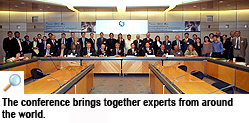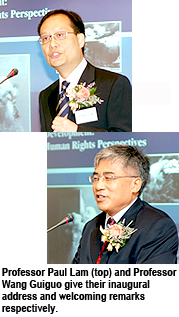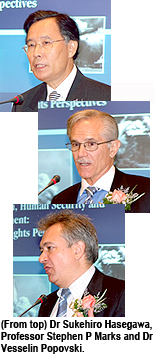International experts gather at CityU to discuss terrorism
|
The School of Law at City University of Hong Kong (CityU) opened the “International Conference on Terrorism, Human Security and Development: Human Rights Perspective” on 16 October.
The 16-17 October conference, organised in collaboration with the United Nations University (UNU), Japan, is the first of its kind in Hong Kong. It brought together more than 25 experts in law and policy issues relating to terrorism, public law, comparative and international law, human rights and development from around the world.
Professor Paul Lam Kwan-sing, Acting Vice-President (Undergraduate Education) of CityU, welcomed the participants. “CityU is dedicated to nurturing quality graduates with a global mindset,” Professor Lam said. “This conference on terrorism, an issue of universal concern, is another example of how the University delivers the most up-to-date knowledge to our students.”
Professor (Chair) Wang Guiguo, Dean of CityU’s School of Law, believed the conference would be a valuable experience for both colleagues and students of the School. “I am very grateful to have this group of important experts from all over the world come and discuss such important issues on terrorism and human rights. Today and tomorrow, our colleagues and students will learn a lot,” he said.
The opening ceremony featured renowned experts and scholars, including Dr Sukehiro Hasegawa, Former Special Representative of the UN Secretary-General for East Timor; Professor Stephen P Marks, François-Xavier Bagnoud Professor of Health and Human Rights, Harvard University, who gave the keynote speech; and Dr Vesselin Popovski, Director of Studies on International Order and Justice, Peace and Governance Programme, UNU, who closed the ceremony.
There are six sessions in the two-day conference. The international experts will share their views at different sessions chaired by professors from the School of Law.
The mission of the UNU is to contribute, through research and education, to efforts to resolve pressing global problems that are of concern to the United Nations, its peoples and member states. As an academic institution of the United Nations, the UNU has no student body in the traditional sense. Its students are postgraduate or postdoctoral researchers who receive advanced training as UNU Fellows or participate in UNU training courses, seminars and workshops. |


